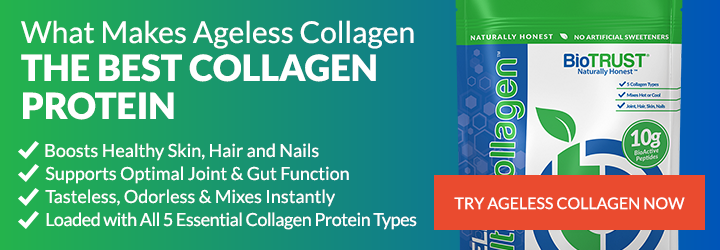Whole Eggs vs Egg Whites: What’s ACTUALLY Better For You

If you’ve ever gone out to eat for breakfast or brunch, you may have noticed that restaurants often have a dedicated “healthy” section of the menu where they feature various omelets or egg dishes made with just the egg whites. For example, my favorite breakfast place offers a number of delicious, healthy, and locally-grown options. In the “healthy” section of their breakfast menu, they offer several egg options (in addition to avocado toast and a superfoods bowl). Yet, every one of them is made with egg whites rather than whole eggs (including an egg white and turkey omelet and an egg white power wrap). But in the debate between whole eggs vs egg whites, are egg whites ACTUALLY better? Is it really healthier to toss the yolks and just eat the whites?
Let’s take a look at the nutrition of eggs vs. egg whites and which option really is better.
Whole Eggs vs Egg Whites: Nutrition Facts
Egg White Nutrition Facts:
- Calories: 17
- Total Fat: 0 g
- Saturated Fat: 0 g
- Cholesterol: 0 mg
- Sodium: 55 mg
- Potassium: 54 mg
- Carbohydrates: 0 g
- Protein: 3.5 g
- Vitamin A: 0% of the RDI
- Calcium: 0%
- Vitamin D: 0%
- Vitamin B12: 0%
- Iron: 0%
- Vitamin B6: 0%
- Vitamin B2: 6%
- Vitamin B5: 1%
Whole Eggs Nutrition Facts:
- Calories: 72
- Total Fat: 5 g
- Saturated Fat: 1.5 g
- Cholesterol: 186 mg
- Sodium: 71 mg
- Potassium: 69 mg
- Carbohydrates: 0 g
- Protein: 6 g
- Vitamin A: 5-8% of the RDI
- Calcium: 2%
- Vitamin D: 10-21%
- Vitamin B12: 15%
- Iron: 4%
- Vitamin B6: 5%
- Vitamin B2: 12-15%
- Vitamin B5: 7%
Looking at the lists above, it’s easy to see that egg whites are much lower in calories, fat, saturated fat, and cholesterol. Both the higher amount of fat and cholesterol content explain why eggs were unfairly demonized for so many years.
Yet today, we have not only learned that fat is not evil, it’s good for us. And we’re learning more and more about cholesterol and how it is also necessary for building cell membranes, making key hormones including testosterone and estrogen, helping the metabolism work well, helping produce vitamin D, and its role in bile acid production, the digestion of fat, and the absorption of nutrients.
What’s more, research has revealed that, for most people, “dietary cholesterol is not correlated with increased risk for heart disease, and it has little impact on blood cholesterol levels.” Even the American Heart Association revised their position (way back in the year 2000) to allow folks to enjoy eggs again. (Although it is important to note that there are folks who have a genetic variant that appears to make them hyper responders to dietary cholesterol, and they may be better off choosing to limit or avoid egg yolks.)
Because they’re lower in calories and fat and a relatively concentrated source of dietary protein, many folks believe that it’s a worthy tradeoff to toss the yolk and just eat the white. After all, egg whites are made up of 90% water and 10% protein, and 67% of the protein in eggs comes from the egg white vs. the whole egg.
Yet once the yolk is gone, the rest of the nutrition value changes as well—and not for the better. In the whole eggs vs egg whites debate, the whole egg is loaded with vitamins and minerals that are not included in the egg white. And due to their nutrient density, eating whole eggs has been shown to provide a number of health benefits. For example, they:
- Are a great source of healthy protein with an excellent ratio of amino acids to support muscle strength and recovery.
- May raise “good” HDL cholesterol levels to support heart health.
- Are a rich source of vitamin B12, which energizes the brain and provides crucial protection by helping eliminate potentially neurotoxic compounds (i.e., homocysteine) and supporting long-term nerve health and function.
- Are one of the few excellent sources of the vitamin-like compound choline, a lesser-known nutrient that supports brain health and nervous system function. Recent research suggests that unless you’re eating whole eggs, it’s very likely you’re not consuming enough of this mission-critical nutrient.
- Provide the antioxidant carotenoids lutein and zeaxanthin as well as vitamin A, which are vital for eye health.
- Provide omega-3 fatty acids, as long as they are pasture raised or come from chickens fed an omega-3 enriched diet.
- Are very satiating, so you may eat fewer calories over the next 36 hours while enjoying sustained energy levels.
- May help you lose weight and reduce your BMI and waist circumference.
- Are inexpensive, easy to find, delicious, and oh-so-versatile.
Whole Eggs vs Egg Whites Debate: A Recap
As a low-calorie, nutrient-dense whole food, eggs are pretty close to being a perfect food. And those that are organic and come from pasture-raised hens are even better as they’re higher in the omega-3 fatty acids and other nutrients like vitamins A and E.
Which should you eat: whole eggs vs egg whites? For most of us, the answer is both, of course. In other words, don’t toss out the yolks! (And if you do opt for egg whites, find another purpose for the yolks; or, you can send them to me.) Note: For those who are hypersensitive to dietary cholesterol, it may be better to eat more egg whites than whole eggs.






